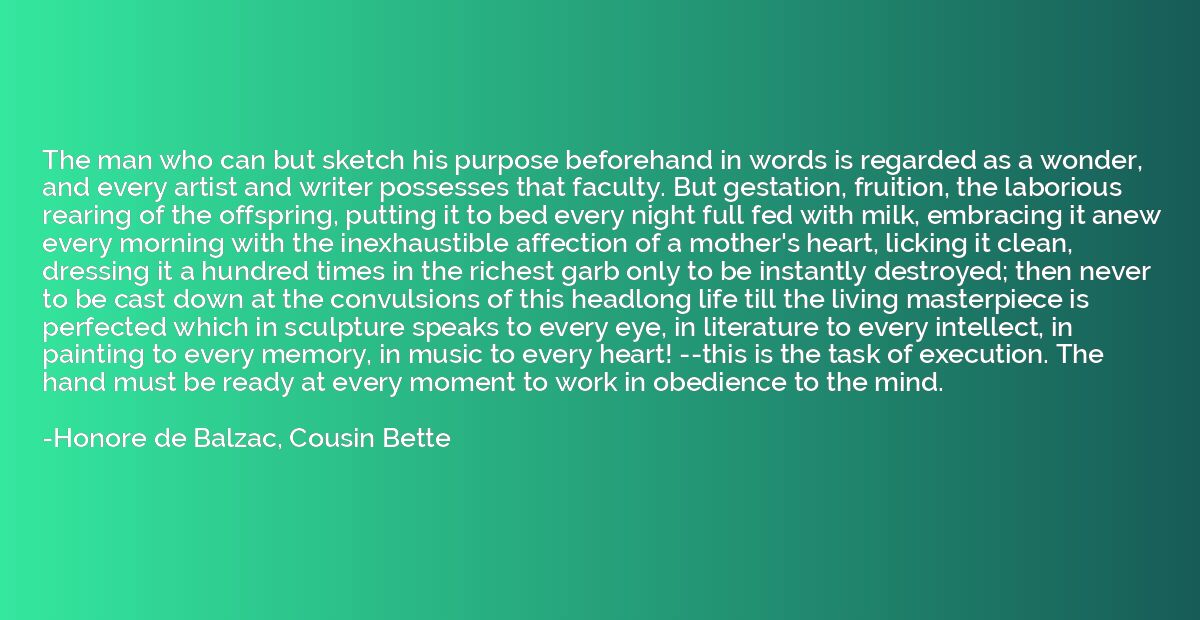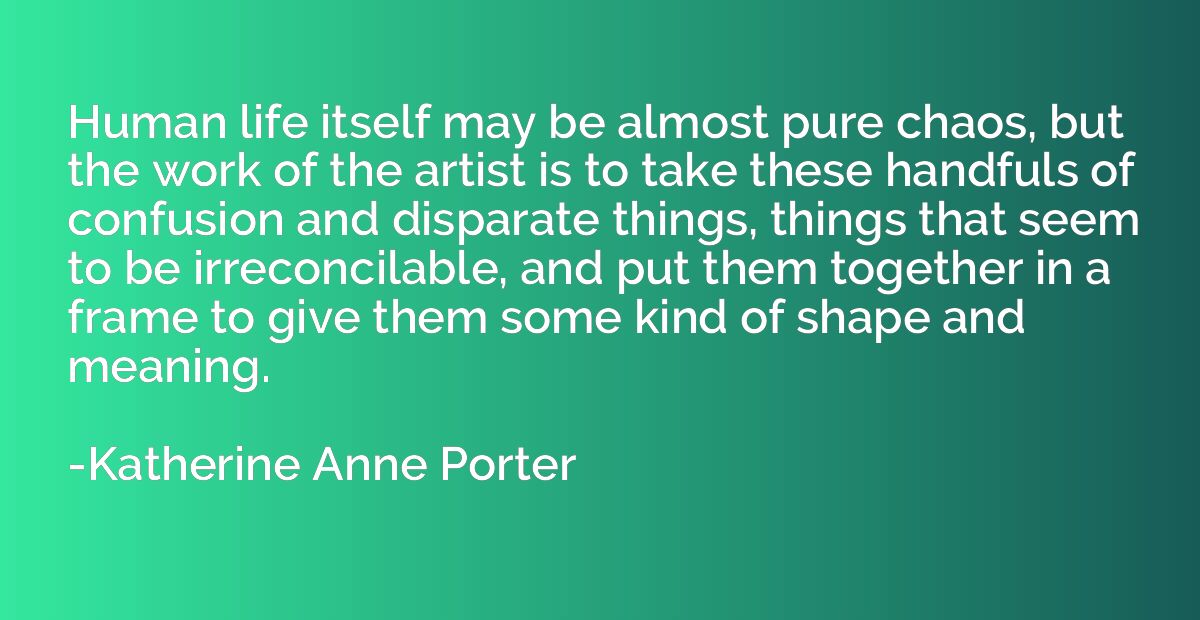Quote by Honore de Balzac, Cousin Bette
The man who can but sketch his purpose beforehand in words is regarded as a wonder, and every artist and writer possesses that faculty. But gestation, fruition, the laborious rearing of the offspring, putting it to bed every night full fed with milk, embracing it anew every morning with the inexhaustible affection of a mother's heart, licking it clean, dressing it a hundred times in the richest garb only to be instantly destroyed; then never to be cast down at the convulsions of this headlong life till the living masterpiece is perfected which in sculpture speaks to every eye, in literature to every intellect, in painting to every memory, in music to every heart! --this is the task of execution. The hand must be ready at every moment to work in obedience to the mind.

Summary
This quote highlights the distinction between having a vision or idea and the actual process of bringing that vision to life. It suggests that anyone can articulate their purpose or intention, but true artistry lies in the execution of that purpose. The quote emphasizes the tireless dedication required to nurture and refine one's creation, comparing it to the care and commitment of a parent. It emphasizes the importance of the artist's hand in translating the mind's vision into a tangible masterpiece across various artistic disciplines, captivating a wide range of senses and emotions.














